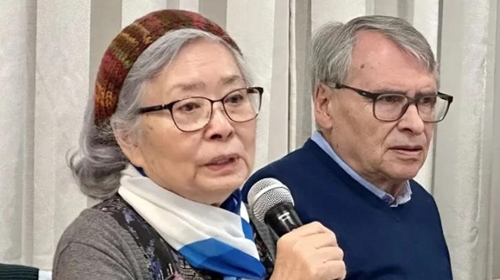"We have recently received information about this matter. Vietnam regrets the ruling by the Paris Court of Appeal and has repeatedly expressed its stance on the issue. Although the war has ended, its severe consequences continue to profoundly impact our country and people, including the long-term and serious effects of AO/dioxin."
    |
 |
|
Tran To Nga speaks at a press conference |
Vietnam strongly supports victims of AO/dioxin and calls on the chemical companies that produced and supplied the toxin to the U.S. during the war in Vietnam, which has caused millions of Vietnamese to suffer, to take responsibility for the damage, she emphasized.
Since 2014, Nga, a French-Vietnamese citizen and AO/dioxin victim, has filed a lawsuit at the Évry Court in a Paris suburb. The lawsuit against U.S. chemical corporations was adjudicated in 2021. However, the Évry Court dismissed the case, citing that the companies were entitled to "sovereign immunity" as they acted under orders from the U.S. government, thus the court did not have jurisdiction over actions by a foreign sovereign state. On May 7 this year, the Paris Court of Appeal held a hearing for Nga’s case against the 14 U.S. chemical companies, including Monsanto, for producing and selling dioxin-laden herbicides used by U.S. forces during the war in Vietnam. On August 22, the court issued a ruling similar to that of the Évry Court.
Also at the press briefing, in response to a reporter's question about U.K. media reports suggesting that British citizens might face exit bans or passport confiscations in Vietnam, Hang stated: "We completely reject such misinformation.”
Vietnam’s consistent policy is to facilitate the entry, exit, and residence of foreigners in the country, thus contributing to economic and social development, she said.
Recently, Vietnamese authorities have implemented various measures to ease travel for foreigners coming to the nation for education, work, investment, market exploration, and tourism in accordance with Vietnamese law.
Source: VNA